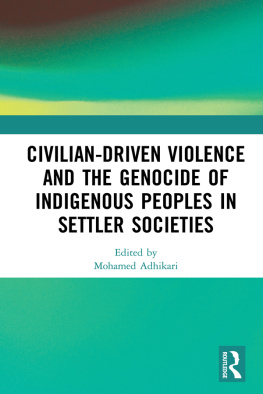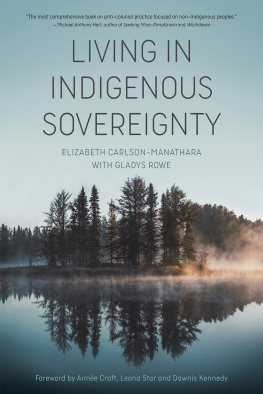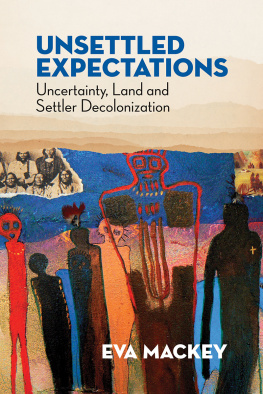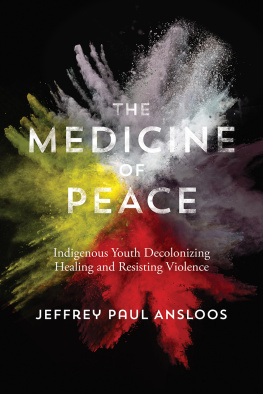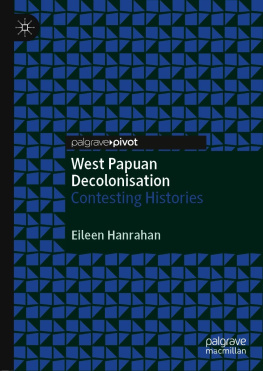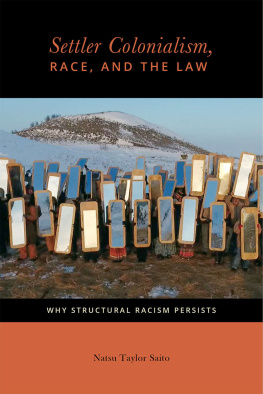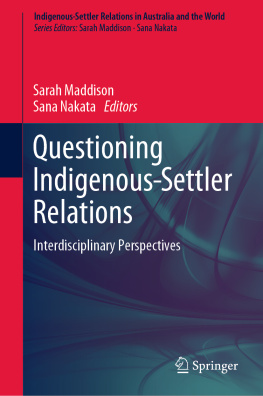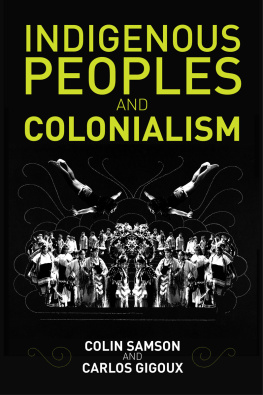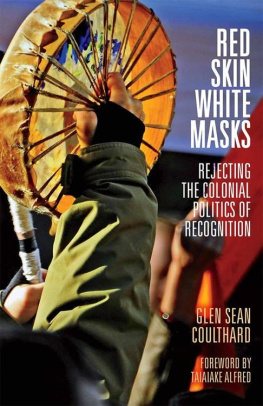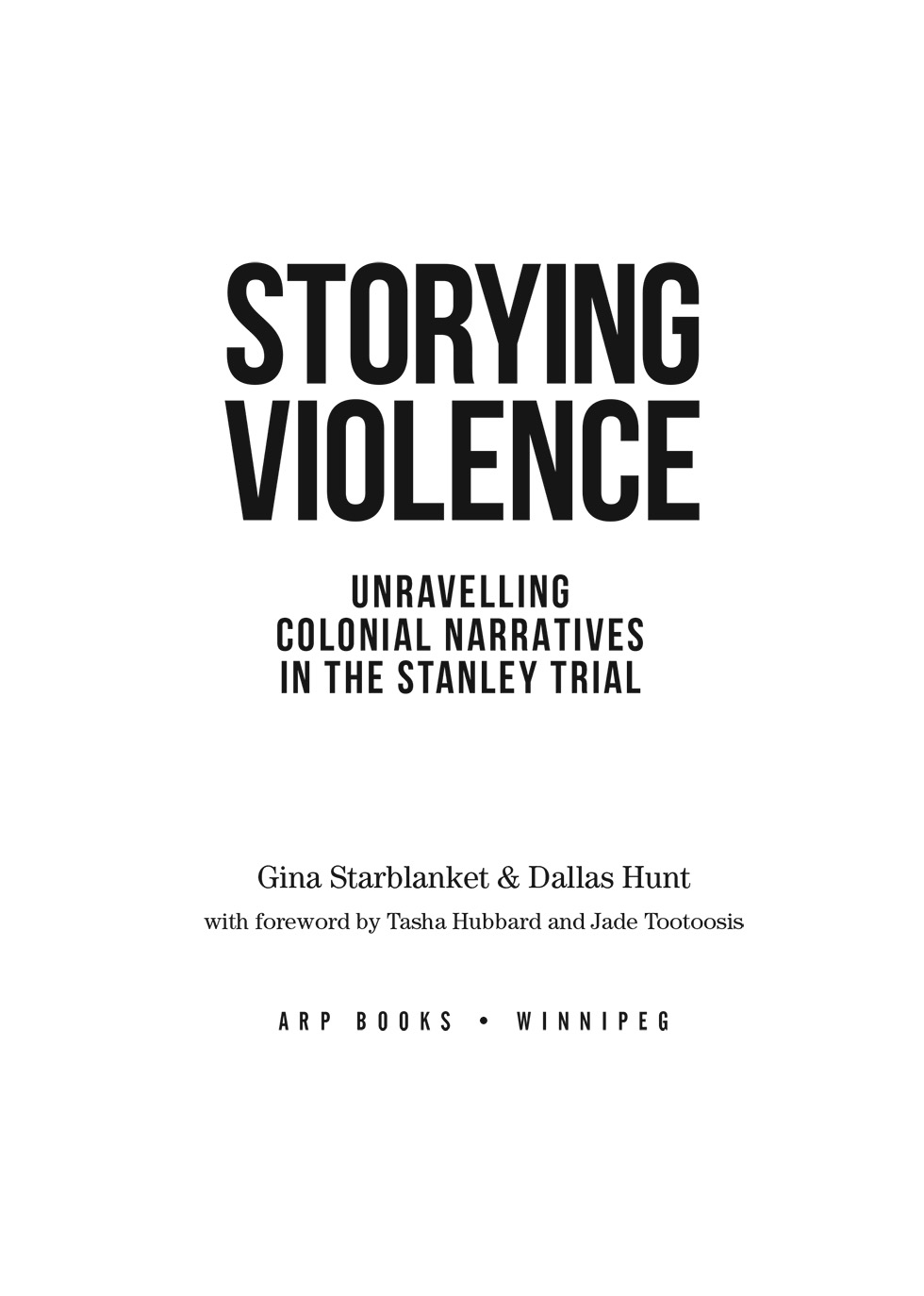Storying Violence:
Unravelling Colonial Narratives
in the Stanley Trial
Copyright 2020 Dallas Hunt & Gina Starblanket
ARP Books (Arbeiter Ring Publishing)
205-70 Arthur Street
Winnipeg, Manitoba
Treaty 1 Territory and Historic Mtis Nation Homeland
Canada R3B 1G7
arpbooks.org
Book design and layout by Mike Carroll.
Cover artwork Our Mother which art the Land by Katherine Boyer.
COPYRIGHT NOTICE
This book is fully protected under the copyright laws of Canada and all other countries of the Copyright Union and is subject to royalty.
ARP Books acknowledges the generous support of the Manitoba Arts Council and the Canada Council for the Arts for our publishing program. We acknowledge the financial support of the Government of Canada and the Province of Manitoba through the Book Publishing Tax Credit and the Book Publisher Marketing Assistance Program of Manitoba Culture, Heritage, and Tourism.
Library and Archives Canada Cataloguing in Publication
Title: Storying violence : unravelling colonial narratives in the Stanley trial / Gina Starblanket & Dallas Hunt ; with foreword by Tasha Hubbard and Jade Tootoosis.
Names: Starblanket, Gina, author. | Hunt, Dallas, 1987- author. | Hubbard, Tasha, writer of foreword. | Tootoosis, Jade, writer of foreword.
Identifiers: Canadiana (print) 20200258613 | Canadiana (ebook) 20200259946 | ISBN 9781927886373 (softcover) | ISBN 9781927886380 (ebook)
Subjects: LCSH: Stanley, Gerald (Farmer)Trials, litigation, etc. | LCSH: Boushie, Colten. | LCSH: Trials (Murder)Saskatchewan. | LCSH: Trials (Manslaughter)Saskatchewan. | LCSH: Indigenous peoplesSaskatchewan. | LCSH: SaskatchewanRace relations. | LCSH: SaskatchewanEthnic relations. | LCSH: Indigenous peoplesViolence againstSaskatchewan.
Classification: LCC HV6535.C32 S29 2020 | DDC 364.152/3097124dc23
Contents
1
Storying the Prairie West
Those that come after us in the Government will think of your children as we think of you.
Treaty Commissioner Alexander Morris (1880, 210)
Every Canadian will gain if we escape the impasse that breeds confrontation between Aboriginal and non-Aboriginal people across barricades, real or symbolic. But the barricades will not fall until we understand how they were built.
Royal Commission on Aboriginal People
A s the quintessential Canadian settlement story goes, early European newcomers arrived in North America and entered into respectful and mutually-beneficial trade and diplomatic relations with Indigenous populations. This story of peaceful settlement and development either highlights Indigenous consent to the theft of our land and cession of our political authority, or glosses over it under the guise of partnership and nation-building. Indigenous people, and Indigenous women in particular, are represented as brokers of cultural difference, those who both metaphorically and literally birthed the hybridity which Canada has since claimed as its origin story.
Such characterizations are a recurring theme in the seemingly endless search for the holy grail of a peaceful, prosperous Canadian identity. To be clear, this national identity is an imaginary construct, yet the fact that consecutive generations of hopeful Canadians have exacted, rationalized, and concealed violence in its name deems it worthy of further inquiry. Here we include the myriad violences against Indigenous peoples that have been committed and that continue to be committed in the interest of assimilation/integration, under the guise of liberal multicultural imperatives of equality and tolerance, and/or other political ideals pursued in the service of the Canadian national interest.
Following early trade relations with Indigenous peoples in the prairies, the Crown is said to have negotiated consensual land-cession treaties with Indigenous populations. This purportedly opened the prairie west up for settlement in exchange for the promise of civilization and, protection. In the popular record, this is where Indigenous peoples contribution to the creation of Canada effectively ends, at least at a symbolic level. We were either perceived to be rapidly dying off, effectively conquered, relocated to and content with life on reserves, or absorbed into the Canadian body politic. Here we see multiple narratives operating in tandem: the myth of the vanishing Indian, the narrative of the irrelevant/incidental Indian as part of the myth of elimination (some Indians might remain, but settlers need not worry about them or their counter-claims), and if they become a problem, then the murderable Indian, whereby violence is justified in the name of progress and prosperity. Howeveras with any storythis isnt the only version.
More telling than the stories that are represented in dominant narratives are the accounts that arent heard. These are stories of land theft, genocide, gendered violence, and dispossession. For the settler story to exist as reality, other experiences that contradict it must be bracketed or dismissed as alternate versions, as narratives that solely appeal to sympathetic bleeding heart progressives, as biased because they reflect Indigenous experiences, as hypocritical if they deviate from caricatures of pre-contact Indigenous life, as historical grievances that we should just move on from, or as the result of co-optation by external parties interested in utilizing Indigenous suffering to leverage their own political agendas.
This ensures Indigenous experiences are either drastically downplayed or dismissed as identity politics, as the ramblings of a minority or special interest group that poses a threat to the national interest.
This zero-sum dynamic also manifests in face-offs between competing conceptions of governance, law, social relations, economy, and the relationship between humans and the lands and waterways. In all of these realms, Indigenous ways of seeing the world and our ways of being are represented as a threat to settler ways of life. The drive to eliminate Indigenous people as Indigenous is quite literally part of the foundational structure of the Canadian nation. Of course, this eliminatory logic targets Indigenous bodies not just because of our physical presence, but because of our alterity.
Even as Indigenous populations have grown in numbers and in social and political presence, settlers seeking to achieve the good life in the prairies have continued to trample over our rights as Indigenous peoples and as human beings. This can be seen in efforts to deny the existence of our distinct rights, to mischaracterize them, terminate them, restrict our ability to exercise them, or to find ways to justifiably infringe upon them. In so doing, they have drawn on capitalist, racist, and misogynist ideologies and imperatives to rationalize the denial of our freedom and aspirations.
At other times, Indigenous peoples have been encouraged to join the prairie good life by way of invitation or forcible incorporation into settler society, and to become the type of citizens to whom Canada promises prosperity, security, and an adequate standard of living.
The latter approach has taken many formsenfranchisement, assimilation, self-government arrangements, invitations to join the modern economy, and so on. Despite growing calls for the inclusion of Indigenous people and our perspectives within dominant institutions, these forms of recognition only serve to graft Indigenous peoples onto the story of a prosperous Canadian existence, to buy into a conception of the good life within overarching terms and power-relations that are not of our own choosing, and that require us to relinquish the relations with Creation that inform who we are as Indigenous peoples.
Next page


